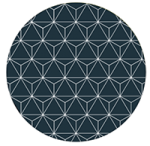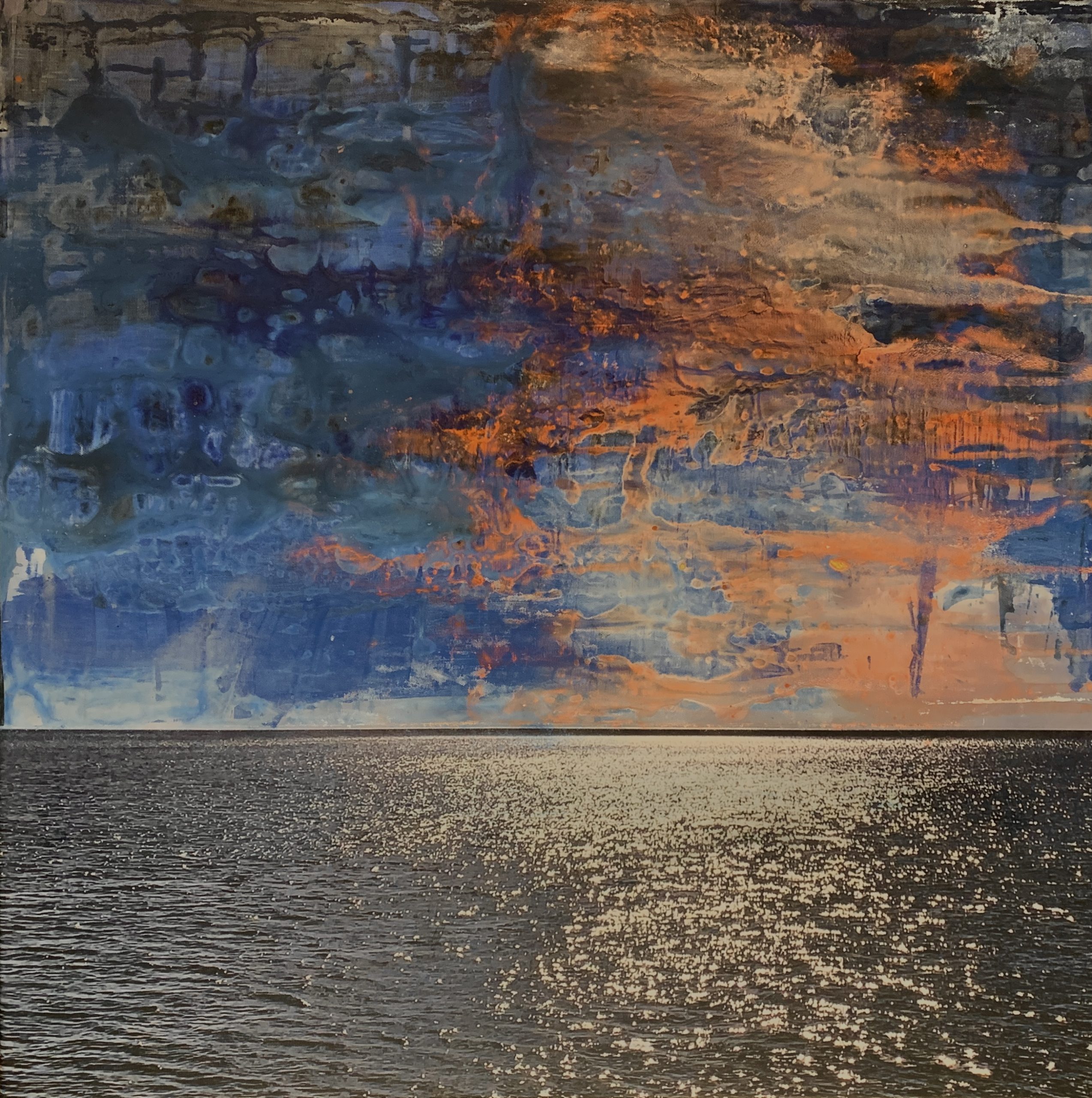Welcome to the Social Art Award 2025 – Online Gallery!
We are grateful for the many powerful contributions from artists across the globe. The selected works reflect the diversity of contemporary social art practices and address urgent issues such as climate and water crises, social and economic inequality, migration, conflict, discrimination, and the protection of human and more-than-human life.
Below you will find the submissions from the edition of 2024/2025 that passed the initial jury round. The Online Gallery offers public visibility to these works and supports dialogue around their themes; it does not replace the final jury decision.
Thank you to all artists for sharing your inspiring and committed work. We invite you to explore the gallery and engage with the perspectives shaping the Social Art Award 2025.
Malerische Spiegelung #12
Heike Kirsch
Creation: Oktober 2024 Material: Acrylic paint Tool: Spatula Background: Photo canvas Dimensions: 80 x 80 x 2 cm Frame: none Photo: Ferry Travemünde - Trelleborg in August 2022 The “Picturesque Reflections” series stems from a deep, personal connection to the Baltic Sea, on whose beaches the artist's feel-good places are located. The photographs were taken by Heike Kirsch on Fehmarn, in Kellenhusen and during ferry trips between Travemünde and Trelleborg in 2022 and 2023. They are more than just documentary snapshots, as they show emotional, direct experiences with wind, light, sand and water and are nourished by special moments with other people she spent time with there. The “Painterly Reflections” series is exemplary of an artistic practice that moves between the poles of aesthetic experience, critical awareness and ecological responsibility. Based on the photographs that Heike Kirsch has printed on canvas, the artist has developed a hybrid work format that combines photography and painting into a visually and substantively multi-layered dialog. The digital photos are deliberately not post-processed - the artist only chooses square image sections for canvas prints in order to break with classic visual habits in landscape photography. The painterly intervention is carried out with acrylic paints and palette knife above the horizon line and creates an abstract reflection of the sea and the beach, breaking up the superficial harmony of landscape photography. Color, structure and movement dominate the composition and displace expanse, perspective and longing. The artist counters the arbitrary coastal romanticism with an expressive dynamic and thus questions the glorified view of the Baltic Sea, while our own health depends on this ecosystem. This aesthetic refraction is no coincidence, but part of an artistic attitude that can be located in the context of contemporary art as a contribution to planetary healing. The destruction of the supposedly idyllic image of the Baltic Sea, which has been photographed and reproduced countless times, becomes a metaphor for the destruction of maritime ecosystems. As a NABU marine patron, the artist is familiar with the critical state of the Baltic Sea, which also makes her artistic work an act of awareness, reflection and resistance, whereby she confronts her own part in various areas of life. At a time when ecological crises often appear abstract and distant, these works open up an emotional approach: they disrupt viewing habits, touch us with their broken beauty and demand new perspectives on our relationship with nature. The painterly process itself becomes an act of pausing and reinterpreting. The power of these works lies in the tension between preservation and change, between connection and irritation: They invite us to view the Baltic Sea as a fascinating and diverse habitat and to connect with it in a protective way and become active.
Creation: Oktober 2024 Material: Acrylic paint Tool: Spatula Background: Photo canvas Dimensions: 80 x 80 x 2 cm Frame: none Photo: Ferry Travemünde - Trelleborg in August 2022 The “Picturesque Reflections” series stems from a deep, personal connection to the Baltic Sea, on whose beaches the artist's feel-good places are located. The photographs were taken by Heike Kirsch on Fehmarn, in Kellenhusen and during ferry trips between Travemünde and Trelleborg in 2022 and 2023. They are more than just documentary snapshots, as they show emotional, direct experiences with wind, light, sand and water and are nourished by special moments with other people she spent time with there. The “Painterly Reflections” series is exemplary of an artistic practice that moves between the poles of aesthetic experience, critical awareness and ecological responsibility. Based on the photographs that Heike Kirsch has printed on canvas, the artist has developed a hybrid work format that combines photography and painting into a visually and substantively multi-layered dialog. The digital photos are deliberately not post-processed - the artist only chooses square image sections for canvas prints in order to break with classic visual habits in landscape photography. The painterly intervention is carried out with acrylic paints and palette knife above the horizon line and creates an abstract reflection of the sea and the beach, breaking up the superficial harmony of landscape photography. Color, structure and movement dominate the composition and displace expanse, perspective and longing. The artist counters the arbitrary coastal romanticism with an expressive dynamic and thus questions the glorified view of the Baltic Sea, while our own health depends on this ecosystem. This aesthetic refraction is no coincidence, but part of an artistic attitude that can be located in the context of contemporary art as a contribution to planetary healing. The destruction of the supposedly idyllic image of the Baltic Sea, which has been photographed and reproduced countless times, becomes a metaphor for the destruction of maritime ecosystems. As a NABU marine patron, the artist is familiar with the critical state of the Baltic Sea, which also makes her artistic work an act of awareness, reflection and resistance, whereby she confronts her own part in various areas of life. At a time when ecological crises often appear abstract and distant, these works open up an emotional approach: they disrupt viewing habits, touch us with their broken beauty and demand new perspectives on our relationship with nature. The painterly process itself becomes an act of pausing and reinterpreting. The power of these works lies in the tension between preservation and change, between connection and irritation: They invite us to view the Baltic Sea as a fascinating and diverse habitat and to connect with it in a protective way and become active.



